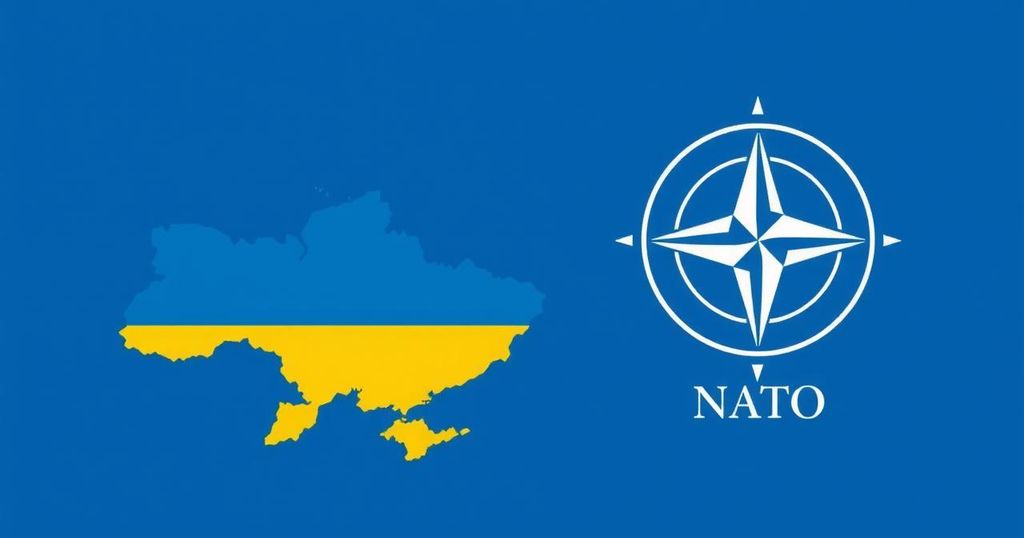US Presidential Election’s Impact on NATO and Support for Ukraine
NATO defense chiefs expressed concerns about the potential decrease of U.S. support for Ukraine due to the upcoming presidential election and possible Trump victory. Secretary of Defense Lloyd Austin highlighted continued bipartisan support in Congress but acknowledged that NATO must prepare for reduced U.S. involvement. The alliance is urged to enhance European commitments and control over military assistance to ensure Ukraine’s defense amid growing threats from Russia and support from other nations. Discussions about leveraging cheaper, effective Ukrainian drones for strikes and ensuring increased capacity production reflect strategic adjustments in response to changing political landscapes.
The forthcoming U.S. presidential election casts a significant shadow over discussions among NATO defense ministers regarding the future of military support for Ukraine. With reports indicating a potential decrease in U.S. assistance should Donald Trump reclaim the presidency, allied officials express concern about maintaining robust support for Ukraine amidst heightened military aid from Iran, North Korea, and China to Russia. During a recent confidential meeting, U.S. Secretary of Defense Lloyd Austin addressed inquiries from NATO counterparts concerning the election’s impact on aid to Ukraine. Despite acknowledging the uncertainty, he noted that bipartisan support for Ukraine persists in Congress. NATO officials anticipate a reduced role for the U.S., with one senior figure emphasizing that “we can’t expect that the U.S. will continue to take on an outsized burden” in supporting Ukraine. This has led to a call for Europe to enhance its contribution to security assistance. The potential election outcomes raise serious questions about the continuity of U.S. support. Trump’s previous comments have raised alarms among NATO allies; his reluctance to openly support Ukraine’s victory and critical remarks about Ukrainian leadership signal a possible reevaluation of the U.S. commitment to Ukraine. One NATO official expressed concern, stating, “I’m very worried. Optimistic is not the word I would use to describe the situation [in Ukraine].” As Russian forces appear to maintain a tactical edge, NATO’s leadership is recalibrating strategies to bolster Ukraine’s capacity. While President Biden has resisted calls to permit Ukraine to use U.S. missiles for strikes deep into Russian territory, there are discussions around utilizing Ukrainian-made drones for precision strikes instead. Secretary Austin defended this approach, highlighting the effectiveness of these drones. In a strategic shift, NATO is consolidating control over the training and military assistance to Ukraine to mitigate the impact of potential losses in U.S. support. European nations are accelerating the production of key weaponry, ensuring that they can maintain support for Ukraine’s defense regardless of U.S. political developments. However, an EU and G7 initiative aimed at long-term funding for Ukraine remains uncertain due to political delays in sanction adjustments. Despite assurances from U.S. officials that support and production capabilities for Ukraine will be sustained in the interim, NATO countries face significant challenges. Currently, Russia’s production capacity of munitions far exceeds that of NATO states, which is further exacerbated by military assistance from North Korea and Iran to Russia’s war efforts. NATO Secretary General Mark Rutte encapsulated the sentiment by asserting that support for Ukraine transcends mere charity, as “the cost of letting (Russian President Vladimir) Putin have his way would be much higher than the cost of supporting Ukraine.”
The article discusses the implications of the upcoming U.S. presidential election on NATO’s strategies and support for Ukraine, particularly in light of the possibility of decreased U.S. assistance should Donald Trump be re-elected. The ongoing military dynamics between Ukraine and Russia are underlined, with NATO’s response to challenges posed by external factors, such as support for Russia from nations like North Korea, Iran, and China, being pivotal in shaping future aid and strategy. Discussions focused on Europe’s increased responsibility in providing long-term security assistance to Ukraine emphasize the alliance’s adjustments in light of geopolitical shifts, especially given the uncertain future of U.S. foreign policy regarding military aid.
In summary, the impending U.S. presidential election poses significant uncertainties for NATO’s commitment to Ukraine. With the potential for Donald Trump to influence U.S. support negatively, NATO is bracing for a shift that may require Europe to enhance its role in security assistance. The ongoing conflict dynamics, alongside dependencies on external military aid to Russia, underscore the urgency for NATO to consolidate its strategies and resources in order to sustain long-term support for Ukraine’s defense against aggression.
Original Source: www.cnn.com




Post Comment